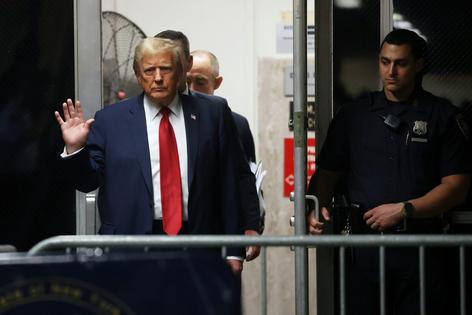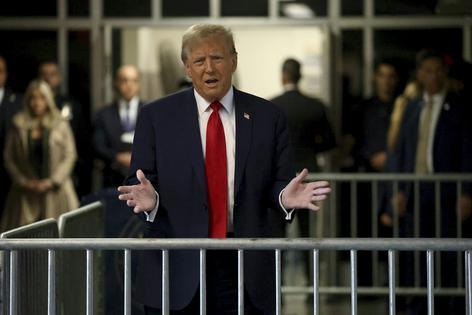Trump trial reveals details about how the former president thinks about, and exploits, the media
Published in News & Features
The first week of testimony is winding down in former President Donald Trump’s trial in New York City on charges that he falsified business records to cover up hush money payments to an adult film star, in an effort to avoid reporting the payments as campaign-related spending.
In a discussion that quickly shifted to topics well outside the courtroom itself, The Conversation U.S. spoke with Tim Bakken, a former New York prosecutor and now a legal scholar teaching at West Point, and Karrin Vasby Anderson, a scholar of political communication at Colorado State University, about the week’s events.
Their focus this week was on how Trump and other politicians interact with the U.S. media, and how their interactions relate to democracy itself.
Anderson: Testimony in the case so far has indicated that Donald Trump thinks that an appropriate way to control or shape the news cycle is to pay off media professionals. That’s a departure from what politicians typically do, which is to hire media strategists who help them shape their message and their political platform in ways that garner favorable media coverage.
Trump’s approach is much more transactional. When he was president, the Columbia Journalism Review noted that he took the “unprecedented move” of revoking press passes from members of the White House press corps who covered him unfavorably.
And some journalists appear to be taking cues from Trump.
Earlier this week, in a Truth Social post, Trump attributed the following quotation to Fox News host Jesse Watters: “They are catching undercover Liberal Activists lying to the Judge in order to get on the Trump jury.” The New York Times found that Trump embellished the quote: The words “in order to get on the Trump Jury” were not in Watters’ initial report.
It’s not surprising that Trump embellished or changed a quotation. What’s really staggering is that after the fact, Watters posted on X the exact statement Trump had made, which was not what Watters had said on air. Essentially, Watters was allowing Trump to be his editor in his coverage and characterization of this case.
Regardless of how the court decides, I think the average American should be concerned that Trump approaches the free press from a transactional perspective. Trump looks to who he can pay off or threaten or intimidate so they will tell the story he wants.
Bakken: Trump is saying that the media engages in the same kinds of distortions that he engages in when he says, more loudly, things that verge on falsehoods or are falsehoods.
...continued











Comments